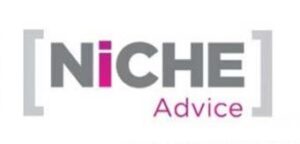
House of Multiple Occupancy HMO Mortgage Questions and Answers
HMO Mortgage is a vast subject surrounded by myths. In this snapshot, we attempt to cover some of the more frequently asked questions on HMOs to help provide guidance.
As with all mortgages you are advised to seek professional help from a suitable qualified Mortgage Broker to source you the best HMO Mortgage. You should also get tax advice from a professional Tax Adviser.
A: Yes, you will be underwritten in the same way as applying in your personal name. Personal guarantees are also commonplace.
A: Yes, absolutely. The product terms are likely to be driven by the HMO content so will be similarly priced.
A: Yes, some Mortgage Lenders only offer HMO mortgages on flats. Further considerations are the size of the bedrooms and communal area.
A: Generally Mortgage Lenders prefer the freeholder to be a different legal entity such as under a separate limited company. There are those who will take a view on identical names but may want a charge on the freehold too as result.
A: Yes, there are a number of Mortgage Lenders that permit Inter-Company loans. As a minimum, one director/applicant must have a significant share in both Companies, and most Mortgage Lenders prefer ALL the directors to be in common. You should get professional advice on the tax position.
A: If this a “Special Purpose Vehicle (SPV)” then it can be established just ahead of a mortgage application. The business bank account will need to be up and running ahead of mortgage completion for the direct debit to function. If however, you are looking to purchase the property under a “trading” company (that has other operations than property purchase) then it is likely the business will need to have filed at least one year’s accounts.
A: Yes, the rates are far higher though so you would need to work out whether the project will provide worthwhile returns. It is normally sensible to enter HMOs when you have at least one other property to your name.
A: Yes, but you will be excluded from a large number of Mortgage Lenders who insist on a minimum 12 months of buy-to-let experience. Also how long you’ve been a homeowner may be a factor.
A: Expert advice from a Mortgage Broker such as Niche Advice is highly recommended if this is your plan. Most Mortgage Lenders do not allow change of purpose. Also, the Surveyor will value the property in its current state which would probably mean “a single family let” so the rental coverage may not work.
A: The market typically sits at 6 months from the date it was registered at the Land Registry. Some Mortgage Lenders also ask for the property to have been let out for a period. If you are looking to remortgage sooner then you should seek professional mortgage help.
A: Yes, if you paid for these home improvements from savings it is straightforward. If you have borrowed money for this purpose; say on loans on credit cards, this will be seen as “debt consolidation” which may limit Mortgage Lender choice, particularly if you are after an “interest only” mortgage as you would be pushing the debt repayment down the road. If the property was bought in the last six months the Mortgage Lender may use the purchase price as the benchmark for value rather than the current value.
A: HMO Mortgage Lenders shy away from “property clubs.” They want a clear understanding of who they are lending to so 2 to 4 main applicants depending on the Mortgage Lender. In the case of a Limited Company 4 main directors with a shareholding between then of 80% (to 100%). In the case of the remaining 20% shareholders, they would also need to be identifiable.
A: 25%. Depending on the Mortgage Lender this could include gifts from relatives or money withdrawn from Companies you own.
A: The simple answer could be this is the only product they offer, however it’s probably more likely to be the amount of money you are looking to borrow. The rental assessment is generally more favourable on 5 year fix products.
A: The management of repayment mortgages is more labour and systems intensive, and as demand is relatively small a number of HMO Mortgage Lenders, particularly those launched in the last 2 years, have decided not to offer them. Overpayments may be allowed without penalty and this could be a way of managing your debt down. If you are not committed then shop around.
A: Yes, although increased competition is driving these down they are still destined to be higher than standard mortgages as they present a greater risk to the Mortgage Lender.
Also, heavy fees can enable a lower interest rate which could lead to a more favourable rental assessment. Mortgage Lenders compete in this area to attract business.
HMO Mortgage Lenders often apply percentage product figures which hit large mortgages in particular. It’s therefore sensible to look out for special deals that appear from time to time with set flat fees. Your Mortgage Broker can help guide you on this.
The legal costs need to factor in extra checks such as HMO licensing and tenancies. Limited Company transactions also have specific Land Registry deadlines. All of which add to the cost.
A: As a guide, if you are in the UK already you will typically need 2 to 3 years of address history here. If you are based abroad the country is a factor and you are likely to need a 35% and can expect high rates.
A: You are likely to need the current UK letting experience and have 3 active lines of credit here including a mortgage.


